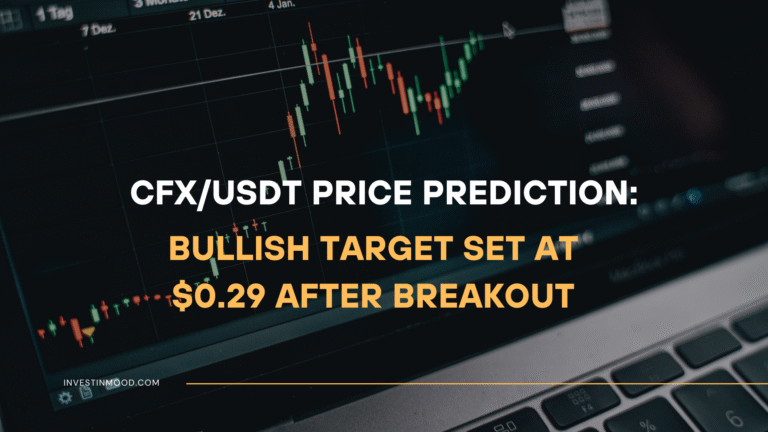
Image Source: [https://www.freepik.com]
When it comes to managing your funds, searching for expert advice can create a considerable distinction in your fiscal prospects. That’s where the best financial advisors appear. Whether you are scheduling for pension, saving for your child’s education, or searching to raise your assets, the correct fiscal advisor can lead you through the complexities of the monetary earth. But what exactly does a fiscal advisor perform, and how do you pick a superior one for your needs? In this article, we will analyze the role and responsibilities of best financial advisors, their pros and cons, and address some frequently asked concerns about economic advisory offerings.
Not all financial advisors are fiduciaries. A fiduciary is legally obligated to act in your best interest—always ask this upfront to avoid conflicts of interest and biased recommendations.
Key Takeaways
Who is a Financial Advisor
A monetary advisor is a skilled person who supplies expert advice on managing your resources. They support clients with a wide range of fiscal problems, including financial planning, capitalizing, tax scheduling, estate scheduling, and pension tactics. The best financial advisors are well versed in these areas and tailor their advice based on the client’s fiscal aims, risk tolerance, and time horizon.
I once hired an advisor based solely on brand recognition, only to find their advice was heavily commission-driven. It wasn’t until I switched to a fee-only fiduciary advisor that I felt my financial goals—not product sales—were the priority.
Roles and Responsibilities of the Best Financial Advisors
The role of an economic advisor is multifaceted. Here are some of the primary responsibilities of the best financial advisors:
- Investment Advice: The core of many economic advisors operates is guiding clients in creating wise asset allocation choices. They aid clients in choosing securities that synchronize with their aims, whether it’s for brief term development, prolonged term protection, or superannuation.
- Financial Planning: A fiscal scheme is indispensable for anyone searching to oversee their fortune effectively. The best financial advisors facilitate in creating thorough economic plans that consist of financial planning, saving, and scheduling for major life developments such as acquiring a place or pension.
- Risk Management: The best financial advisors also assist clients interpret their risk. They advise insurance and other tactics to mitigate risk, securing your property from unpredictable life happenings.
- Tax Planning: A well-arranged tax approach can set aside your considerable amounts of wealth. Economic advisors guide clients to lower their tax liabilities by recommending tax optimized asset allocation methods, pension plans, and other tax saving possibilities.
- Retirement Planning: Scheduling for superannuation is one of the most essential aspects of economic advisory facilities. Advisors steer clients in selecting the optimal superannuation reserves selections, such as 401(k)s, IRAs, or other superannuation accounts, ensuring they have enough saved to uphold their desired lifestyle.
- Estate Planning: The best financial advisors also present advice on how to pass down fortune effectively. They work with clients to establish wills, trusts, and other estate scheduling documents to ensure the smooth transfer of resources after death.
- Ongoing Financial Monitoring: Fiscal scheduling is not a one-time event. The best financial advisors regularly analyze your fiscal condition and adjust plans based on changes in your life or the exchange.
Use NAPFA (National Association of Personal Financial Advisors) or CFP Board directories to find certified, fee-only fiduciary advisors in your area. This ensures a baseline of expertise and trustworthiness.
Pros of Working with the Best Financial Advisors
- Expertise and Knowledge: Monetary advisors are highly trained professionals who hold deep understanding of monetary markets, tax laws, and asset allocation methods. Their competence can assist clients create educated choices.
- Personalized Financial Plan: One of the essential rewards of working with the best financial advisors is the personalized advice they present. Advisors generate tailored plans that match with your distinct fiscal condition and extended term aims.
- Time Saving: Managing your funds can be time consuming. Economic advisors take the burden off your shoulders by handling asset allocation determinations, tax scheduling, and more, allowing you to prioritize other crucial areas of your life.
- Risk Management: The best financial advisors comprehend how to handle risk effectively. They can guide you to protect your holdings through insurance and other approaches, giving you serenity of mind.
- Financial Discipline: Working with a monetary advisor can inspire improved fiscal practices. They guide you to keep you focused with saving, financing, and sticking to your monetary strategy.
According to Vanguard, working with a financial advisor can add about 3% more in net returns annually through behavioral coaching, tax strategies, and portfolio rebalancing.
Cons of Working with The Best Financial Advisors
- Price: Hiring an economic advisor can be costly. Depending on the type of advisor, you may be required to pay a flat fee, hourly price, or a percentage of your holdings under direction. This charger may not be feasible for everyone, especially those just starting their economic adventure.
- Conflicts of Interest: Some monetary advisors may possess conflicts of loan charges if they are paid commissions based on the economic products they exchange. This could manage recommendations that gain the advisor more than the client.
- Dependence on Advisor: While a monetary advisor offers priceless advice, you may become too dependent on them for generating determinations. It’s crucial to grasp your own economic aims and be involved in the judgment generating procedure.
- Potential for Misalignment: Not every economic advisor will be the correct fit for every client. If the advisor’s funding plan or monetary philosophy does not match with your own, it can cause dissatisfaction and missed monetary chances.
A New York Times profile featured a couple in their 40s who switched from DIY investing to a fiduciary advisor. Within five years, they improved asset diversification, minimized taxes, and accelerated their retirement timeline by nearly a decade.
How to Choose the Best Financial Advisor
Finding the optimal monetary advisor for your needs can be a daunting task. Here are some crucial variables to think about when generating your judgment:
- Credentials and Qualifications: Look for fiscal advisors who are certified professionals. Credentials like Certified Financial Planner (CFP) or Chartered Financial Analyst (CFA) indicate an increased level of knowledge.
- Fee Structure: Comprehend how the advisor is compensated. Whether it is fee only, fee based, or commission based? Fee only advisors are often considered the most unbiased because they do not generate commissions on the products they transfer.
- Knowledge: An experienced fiscal advisor will maintain a proven monitor record of helping clients navigate intricate monetary situations. Look for an advisor with skills in areas relevant to your needs, such as pension scheduling or tax tactics.
- Fiduciary Duty: A fiduciary fiscal advisor is legally required to act in your optimal interests. This is a significant factor to think about when selecting an advisor, as it confirms that they are putting your needs ahead of their own economic gain.
- Compatibility: You should feel secure discussing your monetary aims and worries with your advisor. A beneficial working relationship will ensure that you both perform together toward attaining your monetary targets.
Some advisors earn commissions by recommending specific financial products—even when better alternatives exist. Always ask for a detailed fee structure and a breakdown of how they’re compensated.
Conclusion
In conclusion, the best financial advisors present invaluable proficiency, helping humans and families navigate the complexities of managing their capital. From capital allocation advice to pension scheduling, a fiscal advisor’s role is to present personalized guidance that aligns with your unique objectives. While there are outlays and prospects dangers associated with hiring a monetary advisor, the rewards often outweigh the drawbacks, especially when considering the prolonged term increase and defense of your economic possibilities.
If you’re considering hiring a fiscal advisor, take the time to appraise their credentials, expertise, and strategy to ensure they are the proper fit for you. By selecting wisely, you can establish yourself for monetary victory and calm of mind for ages to come.






